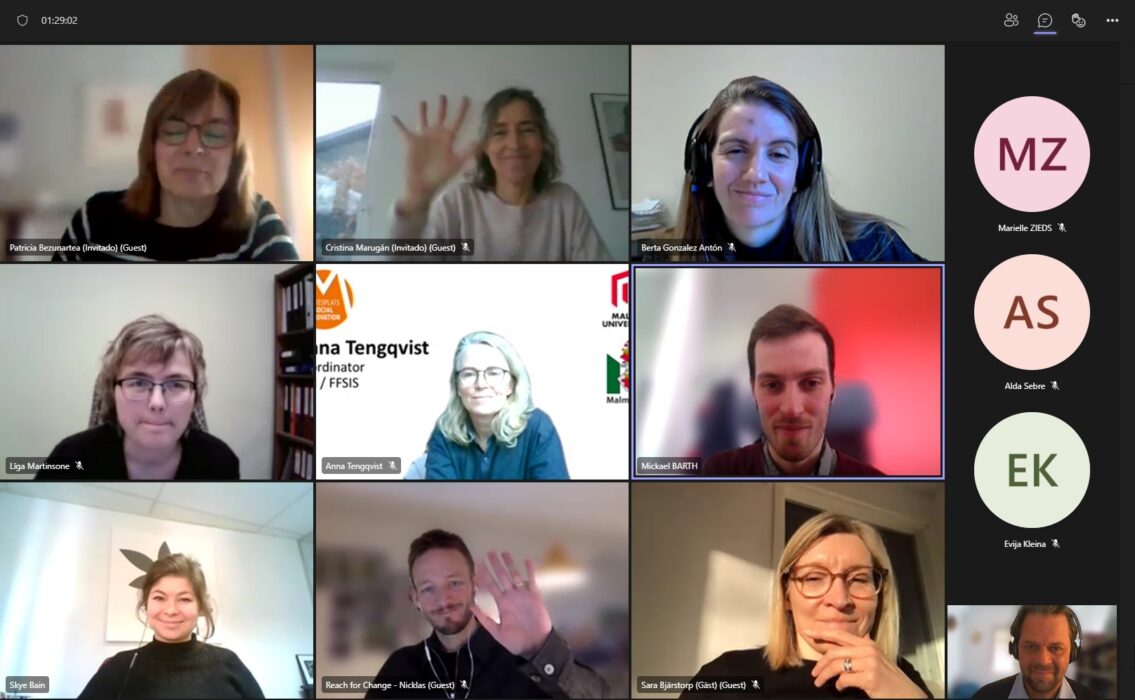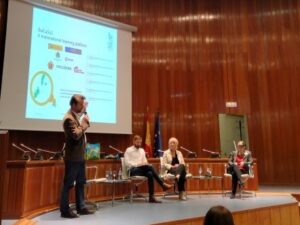On January 27, 2022, the third BuiCaSuS Project Management Committee meeting took place, a quarterly meeting of the decision-making body of the project. Managers and project coordinators from the four countries met to update on current work and plan ahead.
By now, the project is well on course. After an initial phase of reaffirming the specific task in a detailed Inception report, three work-packages are up and running:
- WP2 has defined common definitions in a working paper and currently undertakes a mapping at country level of the ecosystems of social innovation. In Spring 2022, four country-specific background papers are to result from this process.
- WP3 is focused on upscaling. After an intensive phase of coordination between the partners, the focus has been put on transitioning from institutional care settings to community-based alternatives (deinstitutionalization). The partners in Spain and Latvia have identified a total of 10 local initiatives which will enter into a skill training and transnational exchange process on how to support the upscaling of social innovation projects. The first milestone will be 2 learning expeditions to France and Sweden to visit mature social innovation projects which have gone through an upscaling process.
- WP4 has selected examples of best practice on support to social innovation. The examples describe entities in all four countries that give support to social innovation initiatives. Some of these have been proposed to take part in national meeting arenas and cross-sectorial transnational experience exchange with the overall objective to identify competences, methods, and tools for better fostering the domestic ecosystems and initiatives.
The forward-looking discussion stressed a number of issues related to the institutionalization of national competence centres for social innovation. Namely two topics were discussed:
- Relation of the national ecosystems with the upcoming European Social Fund plus (2021-2027) that is currently programmed: As Partnership agreements and National Operational Programmes are being drafted right now, a key question is what funding vehicles and action will be foreseen and how the social innovation priority, as enacted in ESF+ regulation art 14, will be translated into national operations.
- The institutional design of National Competence Centres for Social Innovation: France and Sweden do have structures, with Avise and FFSIS being mandated for the BuiCaSuS project to act as National Competence Centre. Their respective organizational and legal form is notably different. Similar structures still need definition in Spain and Latvia. Constituting features, such as mandate, governance structure, legal and organizational establishment, and expected services they provide, are to be conceived.
The partners also referred to the cross-consortia knowledge exchange as facilitated in the Transnational learning platform at European level.
All in all, the project currently is in a phase of data-collection, networking, and practice exchange. The partners are looking forward to having these respective workstreams connect in the mid-term conference, foreseen in Madrid in October this year.








